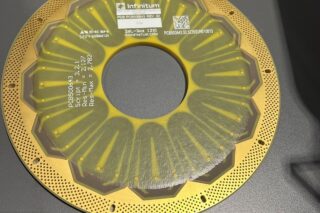Artificial intelligence (AI) revolutionizes patient care, diagnostics, and treatment planning. Our affiliated publication, MedicalExpo e-magazine, has released a series of reports highlighting the advancements of AI in the medical industry, in aesthetics medicine, immunotherapy, and also waste management in hospitals.
AI is making a significant impact in healthcare. Innovative AI tools can analyze extensive patient data, including health history and lifestyle factors. And by leveraging this information, practitioners can create customized treatment plans that cater to individual needs, which leads to better outcomes.
AI offers immense potential in aesthetic medicine. For example, AI-powered image analysis tools can accurately identify skin conditions and facial features. Dermatologists and clinicians can thus diagnose conditions more precisely, aiding in effective treatment decisions.
In the field of immunotherapy discovery, researchers are also leveraging AI to identify new targets for immunotherapy. This could also revolutionize treatment approaches.
Our affiliated publication MedicalExpo e-magazine has highlighted several initiatives showing how AI is revolutionizing the medical industry. We have selected 4 of them.
1/ AI and Aesthetic Medicine
AI is revolutionizing aesthetic medicine by enabling unprecedented precision and personalization. It achieves this through advanced skin analysis, predictive analytics, and realistic simulations.
Dermatologists and clinicians benefit from AI-driven skin analysis tools that evaluate conditions like acne, pigmentation, wrinkles, and texture irregularities. These tools use machine learning algorithms to analyze high-resolution skin images, providing insights that might be hard to detect with the naked eye. The enhanced diagnostic capability allows doctors to create more accurate and personalized treatment plans. Cosmetic surgeons also leverage AI for preoperative planning and postoperative assessment. For instance, Crisalix offers a 3D imaging tool that simulates cosmetic surgery outcomes, aiding precise planning and informed decisions. Continuous monitoring of skin health using AI scanners further enhances patient care.
Explore the full article for more details: How AI Is Revolutionizing Aesthetics
2/ An AI Algorithm to Help Doctors Spot Skin Diseases
Scientists at the Technical University of Munich (TUM) have developed an AI algorithm called FusionM4Net to enhance the diagnosis of skin diseases and cancer. Led by Dr. Tobias Lesser, a computer scientist at TUM, the research team aims to aid less experienced physicians in detecting rare skin diseases and reduce human error caused by stress or fatigue. The algorithm combines visual data from clinical and microscopic images with meta-data, such as patient history, for more accurate skin lesion classification. Early tests show an average diagnostic accuracy of 78.5%, outperforming other algorithms. Clinicians can freely download the code, improving its learning capabilities.
Explore the full article for more details: A New AI Algorithm to Help Doctors Spot Skin Diseases
3/ How AI is Transforming Vaccine and Immunotherapy Discovery
In the field of immunotherapy discovery, artificial intelligence (AI) is making significant strides. Researchers are leveraging AI to identify new targets for immunotherapy, which could revolutionize treatment approaches.
Evaxion Biotech’s AI-Immunology™ platform leverages artificial intelligence to revolutionize healthcare. By simulating the human immune system, it generates predictive models for personalized and next-generation immunotherapies.
The platform focuses on fast and effective vaccine target discovery for cancer and infectious diseases. Evaxion integrates proprietary AI models—PIONEER™, EDEN™, RAVEN™, and ObsERV™—to model the complexity of patients’ immune responses.
Their clinical-stage oncology pipeline includes novel personalized cancer vaccines, while their preclinical infectious disease pipeline addresses bacterial and viral diseases with high unmet medical needs3.
Explore the full article for more details: Evaxion’s AI-Immunology™: Transforming Vaccine and Immunotherapy Discovery
4/ AI and Hospital Waste Management?
Artificial intelligence (AI) is revolutionizing waste management in hospitals by automating the segregation process. Smart bins, equipped with AI technology, can distinguish between clinical, pharmaceutical, and general waste, ensuring precise sorting in compliance with regulatory standards.
Explore the full article for more details: How Can AI Help With Hospital Waste Management?





![Image [BUYING GUIDE] How to Choose the Right Industrial Robot?](/wp-content/uploads/sites/3/Industrial-Robot-320x213.jpg)

![Image [Buying Guide] How to Choose the Right Safety Shoes?](/wp-content/uploads/sites/3/Safety-Shoes-320x213.jpg)


![Image [Buying Guide] How to Choose the Right AMR?](/wp-content/uploads/sites/3/AMR-320x213.jpg)